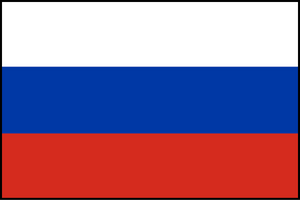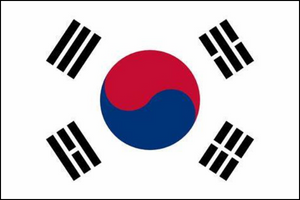
Key global insights
Policies introduced as part of the Federal Government’s Migration Strategy have seen approval rates for student visas in Australia drop to their lowest levels in almost two decades. Amongst the most affected are Indian students, with visa approval rates sitting at 60.8 per cent, down from 74.2 per cent in 2022-23. In 2022-23, Queensland’s International Education and Training sector generated $5.3 billion in exports, representing almost one half of Queensland’s total services exports.

China’s foreign minister, Wang Yi, will visit Australia for the first time in seven years. The trip was confirmed hours after Beijing offered to lift wine tariffs. China imposed tariffs of up to 200%, alongside measures affecting a range of products including barley, red meat, seafood and coal. The Australian foreign affairs minister, Penny Wong, will hold talks with Wang in Canberra on Wednesday next week which offers hope for Queensland exporters impacted by the other tariffs.

President Vladimir Putin has won Russia's election, cementing his grip on power and securing a new six-year term, enabling him to overtake Josef Stalin to become Russia's longest-serving leader. Other nations have said the vote was neither free nor fair due to the imprisonment of political opponents and censorship. During his victory speech, Putin said he would prioritise Russia's "special military operation" in Ukraine and would strengthen the Russian military, which will only add to global tensions.
The World Trade Organisation's Thirteenth Ministerial Conference highlighted disagreements around how to reform the WTO. Topics of contention include how to improve countries’ existing commitments to submit regular information on trade measures, how to restore a functioning dispute settlement system and how rules agreed by a sub-section of members can be integrated. The conference was held against a backdrop of a near-doubling in ‘harmful' trade policy interventions during 2023.

Sweden has officially joined NATO as its 32nd member. This strategically strengthens NATO in the far north, enhancing its Baltic Sea presence. This move signifies a major shift in European security prompted by Russia's war in Ukraine. NATO leaders have called for increased unity and military cooperation. The increased international expenditure on defense offers opportunities for Queensland military suppliers to increase their export hardware to Sweden and NATO more broadly.

South Korea is investing AUD $7m on agricultural digital solutions amid increasingly unpredictable climate conditions. AI, ICT, and other smart farming tools will be used to boost effective cultivation and livestock farming in key areas such as disease prevention, technical advancement in greenhouses, livestock farms and crop fields. Likewise, here in Australia, a recent report has shown that food security is linked to national security, and we must invest in our food supply chain resilience.
Report indicates robots replacing Chinese workers at the world's fastest rate. China has 12.5 times more robots in its workforce than expected, according to an independent think tank in Washington; a big jump from 1.6 times more in 2017. By using robots, companies can save money while also improving efficiencies. Queensland is committed to advancing our manufacturing sector through the Advanced Manufacturing 10-year Roadmap and Action Plan and the Industry 4.0 initiatives.
Featured insights

Shifts in large-scale renewable investment
- The Clean Energy Council says that financial investment commitments in large-scale renewable generation projects in Australia fell to the lowest levels since 2017 during Q4 2023.
- New financial commitments to utility-scale generation projects fell to $1.5bn in 2023 ($6.5bn in 2022).
- Meanwhile, a record 5.9 GW of renewable capacity was added to the grid – 3.1 GW from rooftop solar and 2.8 GW from utility scale generation.
- The Federal Government's Capacity Investment Scheme is set to kick-start lagging investment, by de-risking and revenue underwriting 32 GW of renewable projects.

Vietnam's President Resigns After One Year
- Vietnam’s President Vo Van Thuong has resigned, one year after he was elected, with a Government statement saying he had violated party rules and impacted its reputation.
- Reports suggest Thuong resigned over links to a corruption scandal, making him the second president to resign over corruption in over a year.
- The ruling Communist Party has prioritised addressing corruption.
- Meanwhile, The Economist says that few countries are as well placed as Vietnam to ‘get rich’, citing pragmatic and pro-business policies and effective strategic positioning between China and the United States.
In case you missed it...
- The up-gauged 4 per week widebody Singapore Airlines Cairns-Singapore service commencing 31 March.
- Gold Coast Airport’s new 2024-2044 Master Plan.
- AusTrade’s weekly economic update – subscribe here.
- Visit the Knowledge Base for the latest insights.

